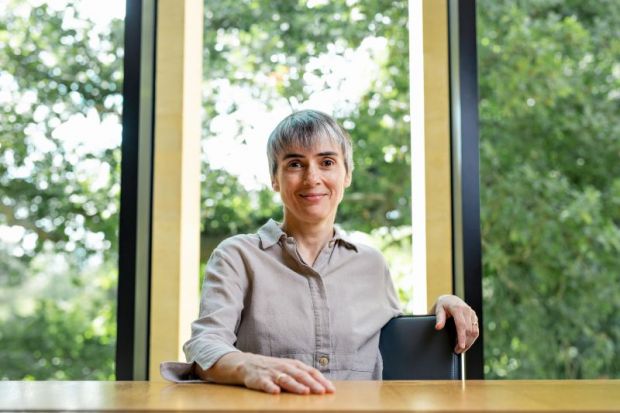The UK government is starting the hunt for a new chief executive of UK Research and Innovation (UKRI) after Dame Ottoline Leyser confirmed she would not seek a second term in office.
In a blog on the long-term future of UKRI, Dame Ottoline sets out her vision for the organisation she has led since June 2020, stating “this coming year marks a particularly crucial time in the evolution of UKRI” because it is “in the midst of a huge change programme”.
Outlining her desire for UKRI to help the government’s Department for Science, Innovation and Technology (DSIT) to implement its Science and Technology Framework and therefore “embed research and innovation so deeply across government that it informs every decision made and every action taken”, Dame Ottoline explains that this is a “long-term project critical for the future of the UK” and “extends well beyond the objectives often cited for UKRI, and beyond my five-year term of office as CEO”.
Responding to the news that Dame Ottoline would not extend her time at the £8 billion-a-year research funder, which was created in 2018 as an umbrella body for the UK’s nine research councils, a DSIT spokesperson said it would “begin preparations to ensure that a world-class candidate is primed to take over this vital role, and we will be launching a full recruitment campaign soon”.
The statement added that the “secretary of state [for science, Michelle Donelan] is grateful for Professor Dame Ottoline Leyser’s leadership of UKRI over the past four years”.
“Dame Ottoline has provided exceptional oversight of UKRI’s transformation programmes, ensuring that UKRI is an agile funder of science and innovation and delivers the recommendations of Sir David Grant’s independent review,” the spokesperson added.
“Following Dame Ottoline’s announcement that she will not be seeking another term, the secretary of state looks forward to continuing to work together during a vital period for UK science and research – driving up participation in Horizon Europe, building a more efficient and joined-up approach to research funding and ultimately unleashing the power of UK research and innovation to drive growth and improve lives.”
In a statement to Times Higher Education, Dame Ottoline added: “My term has 18 months to run and I am fully focused on the opportunities and challenges of the year ahead set out in my blog.”
In her blog, the plant biologist, who ran the Sainsbury Laboratory at the University of Cambridge before taking over at UKRI, sets out what she views as some of her organisation’s successes, stating that the “diverse and dynamic research and innovation needs thrown up by the pandemic vividly demonstrated the power of an integrated funding agency”.
With about a third of UKRI’s budget “collectively managed across all nine UKRI councils”, creating “the necessary diversity and connectivity in the portfolio” of research investments, UKRI had been able to support new technologies such as AI, and quantum and engineering biology, says Dame Ottoline, claiming this approach was “key to winning a rising budget in the last spending review and, crucially, more flexibility within that budget”.
“There is now widespread political consensus that this kind of long-term, fully joined-up, systems-level approach is essential,” says Dame Ottoline. “My ambition is that UKRI transcends zero-sum game thinking and creates a shared endeavour to deliver national prosperity.
“I aim to have amplified the momentum behind this ambition among our many stakeholders and to have shaped an organisation optimised for its delivery.”

